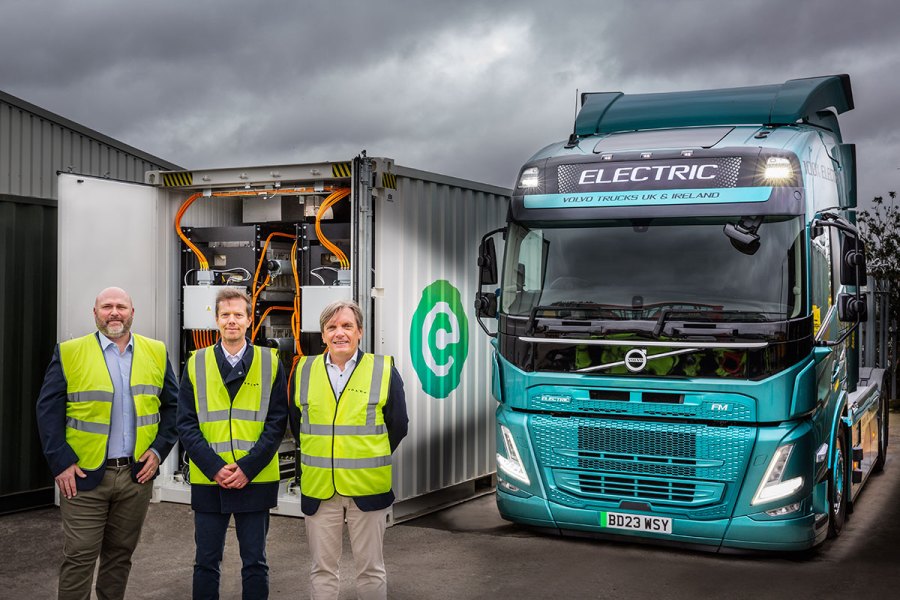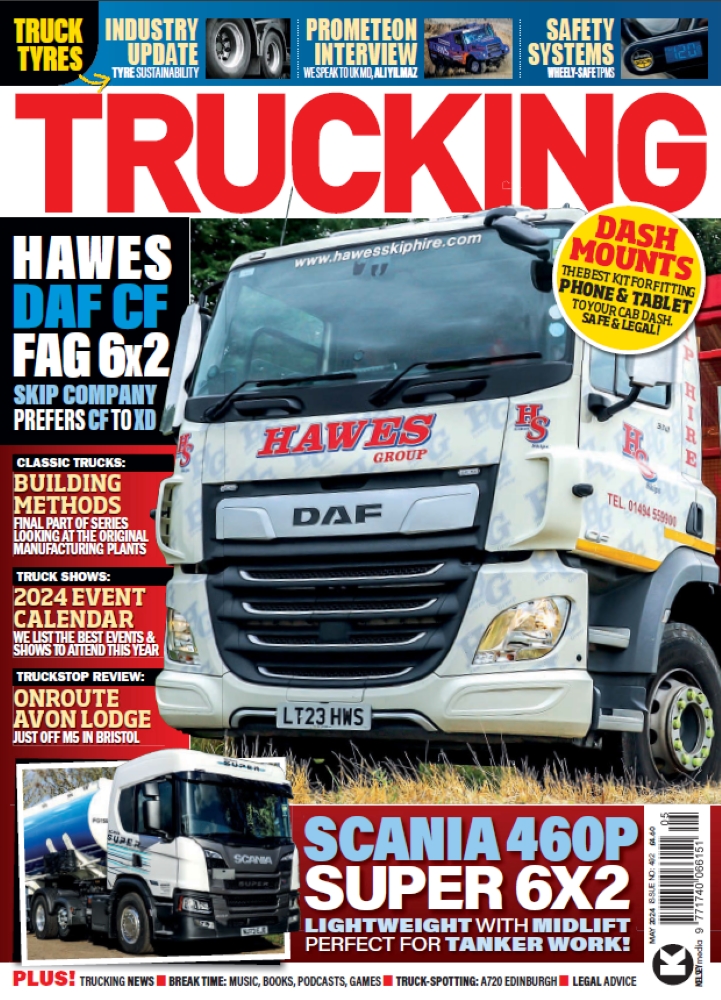Two Volvo Truck & Bus dealers have found an innovative solution to overcome one of the biggest barriers the UK faces in the shift to zero-emission transport.
Volvo Trucks UK & Ireland planned to install high-powered charge points at two service workshops for battery-powered HGVs and buses: Volvo Truck and Bus Centre Carlisle and Volvo Truck and Bus Centre London North, in Enfield. However, it found that neither site had a high enough grid import capacity to power the chargers.
Charge points for HGVs can be up to 50 times more powerful than fast chargers for cars, placing a much bigger strain on energy supplies than car charging.
Connected Energy, a specialist in second-life battery energy storage systems, worked with each site to install its 300kW E-STOR system. The systems will provide enough power to ensure both facilities can run high-capacity charging points – 350kW and five 22kW electric car chargers for courtesy cars and vans for Enfield, while at Carlisle E- STOR will support a 150kW truck charge point and two 22kW electric car chargers for courtesy cars and vans.
Christian Coolsaet, Managing Director at Volvo Trucks UK & Ireland, said: “It is important that we can provide high-powered charging at our key locations within our dealer network to support our customers. However, we are faced with grid capacity constraints at almost all our sites, impacting our infrastructure plans.
“By installing Connected Energy’s battery energy storage systems, we can bring additional power onto the sites, which will help us move forward with the installation of high-powered charge points.
E-STOR acts like an energy reservoir, storing power from the grid or on-site renewables during periods of low demand and then releasing it during peak periods. This can help electric truck depots and service centres offer high-capacity EV charging without worrying about grid connection constraints.
Because E-STOR uses second-life batteries from former EVs, it offers significant carbon savings compared to an energy storage system that uses new batteries. This aligns with Volvo’s drive to adopt circular economy business principles, particularly relating to the reuse of batteries.
Matthew Lumsden, CEO of Connected Energy, said: “Truck depots and service centres were not designed with EV charging in mind, so many of them are facing capacity issues as they look to extend their range into larger vehicles. E-STOR is often a more affordable alternative to expensive grid infrastructure upgrades – or in some cases the only option.
“We have seen an increase in enquiries as bus and truck operators begin to understand the lack of capacity on their sites and start to look for solutions to grid constraints.”






